Related Research Articles

Fatih Akin is a German film director, screenwriter and producer of Turkish descent. He has won numerous awards for his films, including the Golden Bear at the Berlin Film Festival for his film Head-On (2004), Best Screenplay at the Cannes Film Festival for his film The Edge of Heaven (2007), and the Golden Globe Award for Best Foreign Language Film for his film In the Fade (2017).

Kurt Maetzig was a German film director who had a significant effect on the film industry in East Germany. He was one of the most respected filmmakers of the GDR. After his retirement he lived in Wildkuhl, Mecklenburg, and had three children.
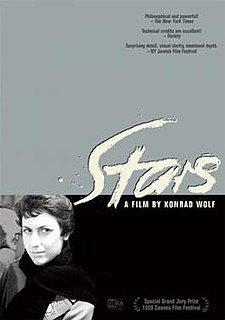
Stars is a 1959 film directed by Konrad Wolf. It tells the story of a Nazi officer who falls in love with a Greek Jewish girl while escorting Jewish prisoners through Bulgaria to a concentration camp. The film won the Special Jury Prize at the 1959 Cannes Film Festival.
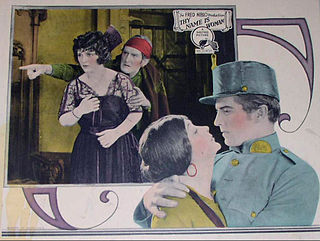
Thy Name Is Woman is a 1924 American silent drama film directed by Fred Niblo and starring Ramon Novarro and Barbara La Marr. A copy of the film survives in the Turner Archive. The film made an estimated profit of more than $100,000.

Julia Thurnau is a French-German actress and artist. She grew up in a village close to Cannes, later moved to Munich where she did acting studies at the Schauspielstudio München, then actors training at the Ernst Busch acting school Berlin.

The 3rd Cannes Film Festival was held from 2 to 17 September 1949. The previous year, no festival had been held because of financial problems.

The 4th Cannes Film Festival was held from 3 to 20 April 1951. The previous year, no festival had been held because of financial reasons. In 1951, the festival took place in April instead of September to avoid direct competition with the Venice Film Festival.

The 5th Cannes Film Festival was held from 23 April to 10 May 1952. As in the previous three festivals, the entire jury of this festival was made up of French persons, with Maurice Genevoix as the Jury President. The Grand Prix of the Festival went to the Two Cents Worth of Hope by Renato Castellani and Othello by Orson Welles. The festival opened with An American in Paris by Vincente Minnelli.

The 17th Cannes Film Festival was held from 29 April to 14 May 1964. On this occasion, the Palme d’Or was renamed "Grand Prix du Festival International du Film", a name that remained in use through 1974, after which it became the Palme d'Or again.
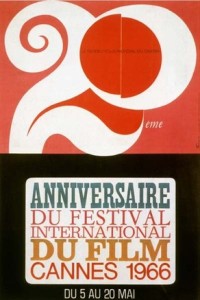
The 19th Cannes Film Festival was held from 5 to 20 May 1966. To honour the festival's 20th anniversary, a special prize was given.
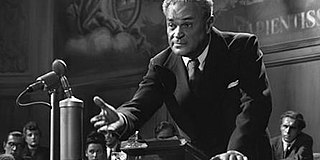
The Last Illusion is a 1949 German drama film directed by Josef von Báky and starring Fritz Kortner, Johanna Hofer and Lina Carstens. It was entered into the 1949 Cannes Film Festival.
The Devil Is a Woman is a 1950 Mexican drama film directed by Tito Davison. It was entered into the 1951 Cannes Film Festival.
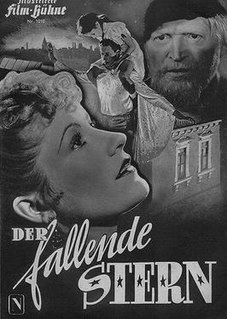
The Falling Star is a 1950 West German drama film directed by Harald Braun and starring Werner Krauss, Dieter Borsche and Gisela Uhlen. It was entered into the 1951 Cannes Film Festival. It was shot at the Bavaria Studios in Munich. The film's sets were designed by the art director Hans Sohnle.

The 29th Cannes Film Festival was held from 13 to 28 May 1976. The Palme d'Or went to Taxi Driver by Martin Scorsese. In 1976, "L'Air du temps", a new section which was non-competitive and focused on contemporary subjects, was introduced. This section, along with sections "Les Yeux fertiles" of the previous year and "Le Passé composé" of the next year, were integrated into Un Certain Regard in 1978.

Karl Schönherr was an Austrian writer of Austrian Heimat themes.

The 39th Cannes Film Festival was held from 8 to 19 May 1986. The Palme d'Or went to The Mission by Roland Joffé.
Rolf Thiele was a German film director, producer and screenwriter. He directed 42 films between 1951 and 1977. He was born in Prödlitz, then in the Austro-Hungarian Empire. His 1958 film Eva was entered into the 1959 Cannes Film Festival. His 1964 film Tonio Kröger was entered into the 14th Berlin International Film Festival.
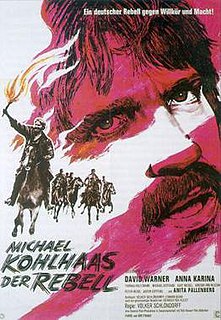
Man on Horseback is a 1969 West German drama film directed by Volker Schlöndorff based on the novel Michael Kohlhaas by Heinrich von Kleist. It was entered into the 1969 Cannes Film Festival. Another film based on the book was released at the 2013 Cannes Film Festival.
Peter Keglevic is an Austrian film director and screenwriter. He has directed 30 films since 1976. His film Bella Donna was screened at the 1983 Cannes Film Festival.
Der Weibsteufel is a 1966 Austrian drama film directed by Georg Tressler. It was entered into the 16th Berlin International Film Festival.
References
- ↑ "Festival de Cannes: A Devil of a Woman". festival-cannes.com. Retrieved 18 January 2009.